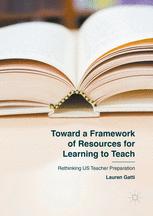

Most ebook files are in PDF format, so you can easily read them using various software such as Foxit Reader or directly on the Google Chrome browser.
Some ebook files are released by publishers in other formats such as .awz, .mobi, .epub, .fb2, etc. You may need to install specific software to read these formats on mobile/PC, such as Calibre.
Please read the tutorial at this link: https://ebookbell.com/faq
We offer FREE conversion to the popular formats you request; however, this may take some time. Therefore, right after payment, please email us, and we will try to provide the service as quickly as possible.
For some exceptional file formats or broken links (if any), please refrain from opening any disputes. Instead, email us first, and we will try to assist within a maximum of 6 hours.
EbookBell Team

5.0
90 reviewsThis book advances a new framework for learning to teach, using in-depth case studies to show how learning to teach—in any type of program—can best be understood as a recursive and dynamic process, wherein teachers differentially access programmatic, relational, experiential, disciplinary, and dispositional resources. In the last twenty years, debates in the field of teacher preparation have increasingly become paralyzing and divisive as rhetoric around the failure of university teacher preparation intensifies. The author addresses the historical and practical factors that animate these debates, arguing that novice teachers and teacher educators must understand the central conflicts in the field; however, the book also advances a way of approaching learning to teach that accounts for but does not get stuck at the level of programmatic designation. Using lively, in-depth case studies, the author shows how novice urban English teachers from two different teacher preparation pathways—a university-based program and an urban teacher residency—learn to teach within a policy context of high-stakes testing and “college readiness.”